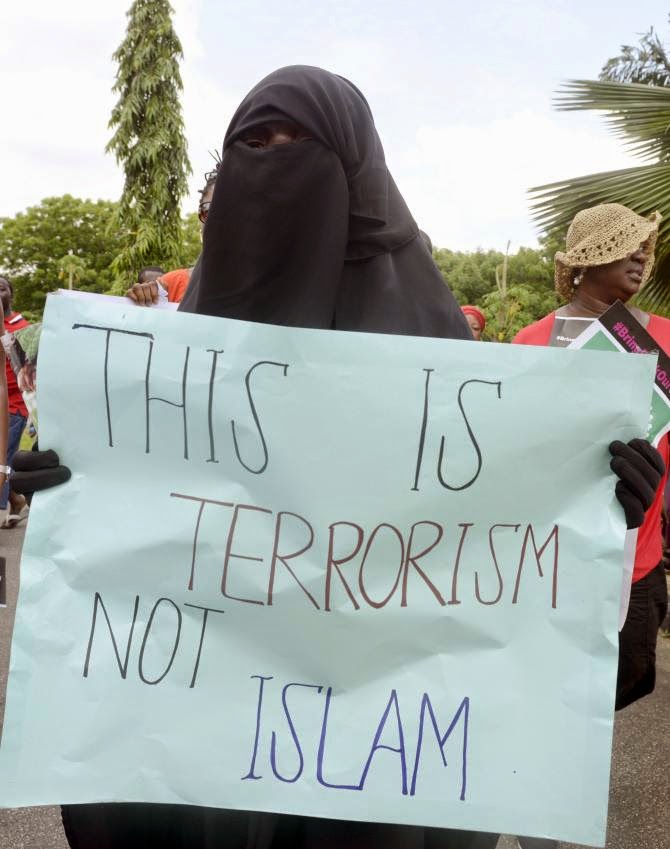Or is there fear that U.S. involvement in Nigeria could escalate the response from the terror group Boko Haram?
When the bizarre disappearance of Malaysia Airlines Flight 370 captured the global imagination like missed episodes of Lost, an
international military search and rescue response was swift. Two months
and a dying black box ping later, no expense has been spared in the
effort to find 240 passengers now presumed dead.
Weeks going on a month after the horrific mass kidnapping of 275
Nigerian schoolgirls by Boko Haram militants, and critics charge a
milquetoast worldwide response that can’t get much past the news
ticker. While the reactions range from Twitter feeds accompanied by #Bringbackthegirls to bubbling hate for the perpetrators, the perceived
inability of Nigerian armed forces to match the passion comes at a time
when conflict in the country’s north is turning a grisly corner.
The tragic kidnappings have put a renewed spotlight on Nigerian
President +GoodLuckjohnathan . Nigeria’s leadership finds itself in a
tough spot, not at all helped by authorities who seem powerless since
Jonathan imposed states of emergency over the northeastern states of
Borno, Yobe and Adamawa.
Nigeria is now Africa’s largest economy,
with gross domestic product rising from $263 billion in 2012 to an
impressive $510 billion in 2013 that’s quickly surpassed longtime
continental leader South Africa. But the oil-rich economic superstar
can’t even provide ample security for its population of 175 million,
much less offer confidence to the rest of the world that Africa’s largest oil producer is able to protect its biggest commodity.
“The Nigerian authorities have wasted three weeks apparently doing
very little to get these schoolgirls released,” Richard Downie tells The Root. Downie, deputy director and fellow for the Center for Strategic and International Studies Africa Program, argues that “the captives could be anywhere by now.”
“If the authorities want to find these girls, they will require help
from local communities in the Northeast, the area most affected by Boko
Haram,” says Downie, who believes that Jonathan has completely botched
the public relations aspect of the Nigerian government’s response.
“Individuals within those communities may have the intelligence that
will help the Nigerian military find the kidnappers,” he says. “Instead
of further alienating them, the
government should be talking to them, reaching out to them, and showing that its No. 1 priority is to rescue these girls.”
government should be talking to them, reaching out to them, and showing that its No. 1 priority is to rescue these girls.”
It’s not as if Nigeria’s military is ill-equipped to handle security:
Its armed forces are among the largest on the continent, at 500,000
active-duty and paramilitary personnel combined. Its defense budget is
nearly 2 percent of GDP, and it enjoys one of the more modern weapons
arsenals in all of Africa. Still, that’s not translating into Boko
Haram’s destruction.
The problem raises questions from both experts and human rights activists about why Nigeria, the world’s fourth leading exporter of liquefied natural gas,
appears to go it alone on security. Renewed calls for U.S. military
assistance abound as terrorism in the country’s majority Muslim North
spins out of control. To observers, it’s a no-brainer: With the mostly
Christian schoolgirls’ whereabouts certain to be in neighboring Cameroon
and nearby Chad, repatriation of the girls should be no harder than
simply repositioning U.S. intelligence satellites on the landscape while
landing in well-armed crack commando teams.
Source: The Root
Source: The Root


No comments:
Post a Comment